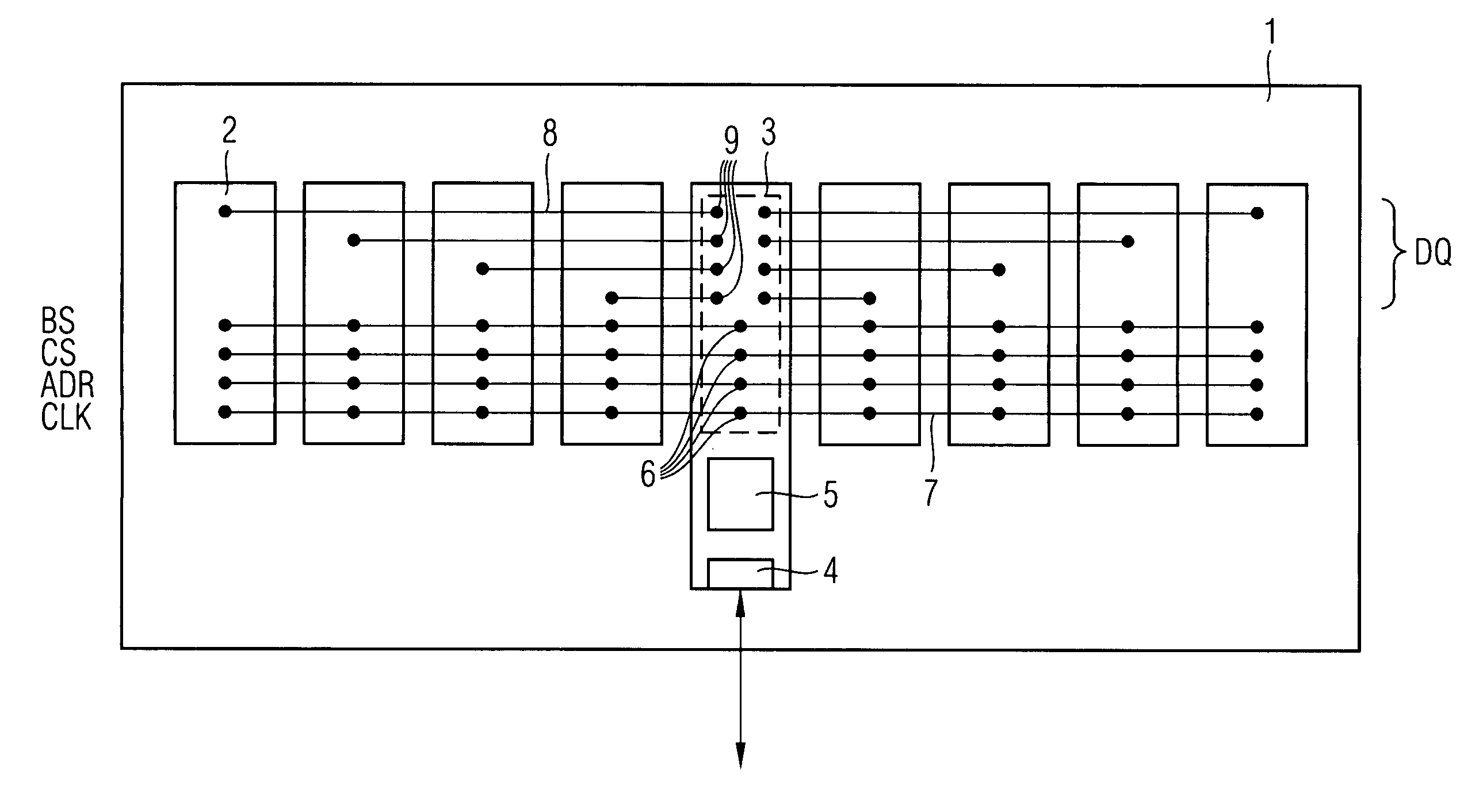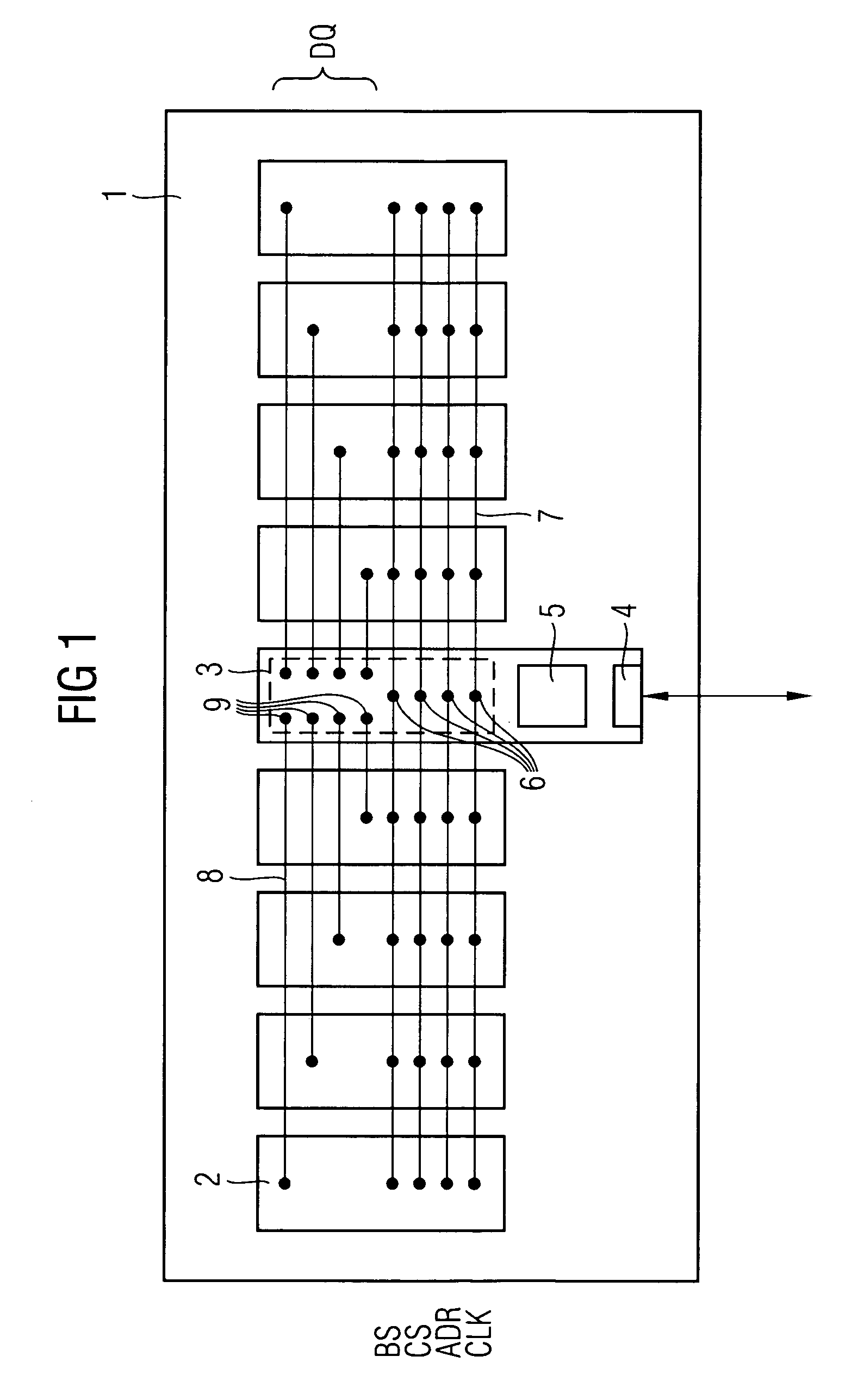Buffer component for a memory module, and a memory module and a memory system having such buffer component
a buffer component and memory module technology, applied in the field of buffer components for memory modules, can solve the problems of not being able to predict the exact amount of delay time between the presence of address and command signals and the presence of control signals, and the customary procedure of eliminating this problem by providing delay elements is therefore difficult, and the signal cannot be transmitted at the full clock frequency
- Summary
- Abstract
- Description
- Claims
- Application Information
AI Technical Summary
Benefits of technology
Problems solved by technology
Method used
Image
Examples
Embodiment Construction
[0031]FIG. 1 illustrates a block diagram of a memory module 1 according to one embodiment of the invention. The memory module 1 comprises eight memory components 2 connected to a buffer component 3. The memory module 1 is formed, for example, in the form of a printed circuit board on which are situated signal lines 7 to which the memory components 2 and the buffer component 3 are connected.
[0032] The buffer component 3 has a data transmission interface 4, via which the memory module 1 receives, from externally, an item of access information in order to write data, read out data or perform other functions in the memory components 2. The access information is provided to a control unit 5 for the buffer component 3, in which the access information is divided and / or converted into suitable address, clock, control and command signals for driving the memory components 2.
[0033] In the present exemplary embodiment, the memory components 2 are preferably DRAM memory components, but may als...
PUM
 Login to View More
Login to View More Abstract
Description
Claims
Application Information
 Login to View More
Login to View More - R&D
- Intellectual Property
- Life Sciences
- Materials
- Tech Scout
- Unparalleled Data Quality
- Higher Quality Content
- 60% Fewer Hallucinations
Browse by: Latest US Patents, China's latest patents, Technical Efficacy Thesaurus, Application Domain, Technology Topic, Popular Technical Reports.
© 2025 PatSnap. All rights reserved.Legal|Privacy policy|Modern Slavery Act Transparency Statement|Sitemap|About US| Contact US: help@patsnap.com



